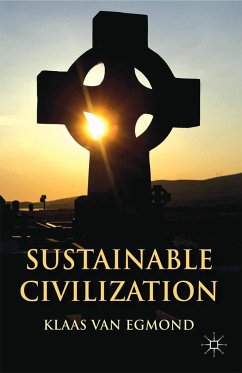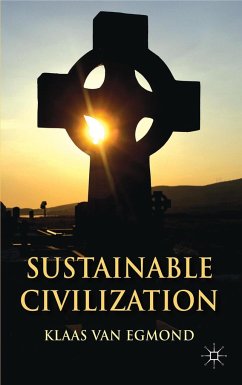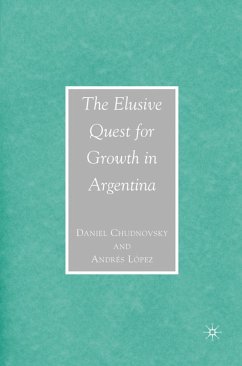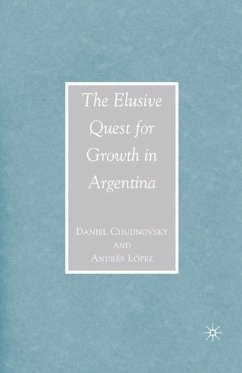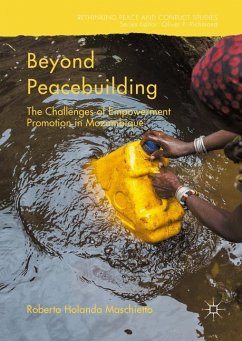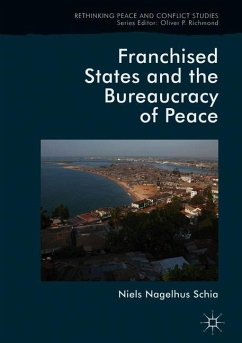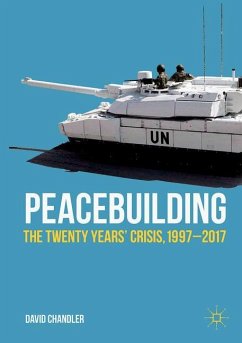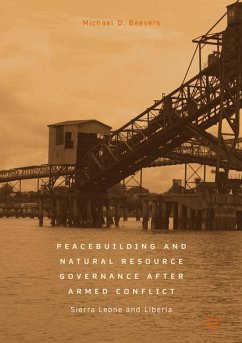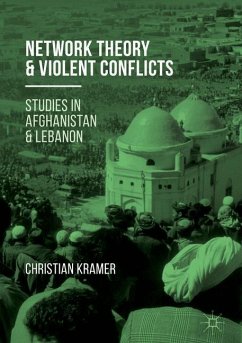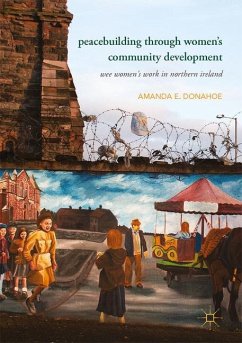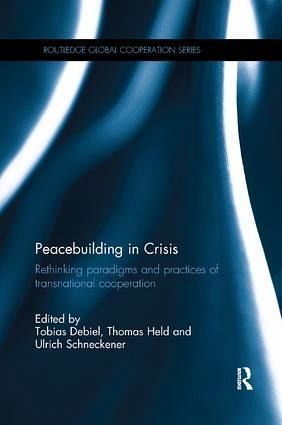
Peacebuilding in Crisis
Rethinking Paradigms and Practices of Transnational Cooperation
Herausgegeben: Debiel, Tobias; Held, Thomas; Schneckener, Ulrich
Versandkostenfrei!
Versandfertig in 1-2 Wochen
61,99 €
inkl. MwSt.

PAYBACK Punkte
31 °P sammeln!
The 1990s saw a constant increase in international peace missions, predominantly led by the United Nations, whose mandates were more and more extended to implement societal and political transformations in post-conflict societies. However, in many cases these missions did not meet the high expectations and did not acquire a sufficient legitimacy on the local level. Written by leading experts in the field, this edited volume brings together 'liberal' and 'post-liberal' approaches to peacebuilding. Besides challenging dominant peacebuilding paradigms, the book scrutinizes how far key concepts of...
The 1990s saw a constant increase in international peace missions, predominantly led by the United Nations, whose mandates were more and more extended to implement societal and political transformations in post-conflict societies. However, in many cases these missions did not meet the high expectations and did not acquire a sufficient legitimacy on the local level. Written by leading experts in the field, this edited volume brings together 'liberal' and 'post-liberal' approaches to peacebuilding. Besides challenging dominant peacebuilding paradigms, the book scrutinizes how far key concepts of post-liberal peacebuilding offer sound categories and new perspectives to reframe peacebuilding research. It thus moves beyond the 'liberal'-'post-liberal' divide and systematically integrates further perspectives, paving the way for a new era in peacebuilding research which is theory-guided, but also substantiated in the empirical analysis of peacebuilding practices.
This book will be essential reading for postgraduate students and scholar-practitioners working in the field of peacebuilding. By embedding the subject area into different research perspectives, the book will also be relevant for scholars who come from related backgrounds, such as democracy promotion, transitional justice, statebuilding, conflict and development research and international relations in general.
This book will be essential reading for postgraduate students and scholar-practitioners working in the field of peacebuilding. By embedding the subject area into different research perspectives, the book will also be relevant for scholars who come from related backgrounds, such as democracy promotion, transitional justice, statebuilding, conflict and development research and international relations in general.





